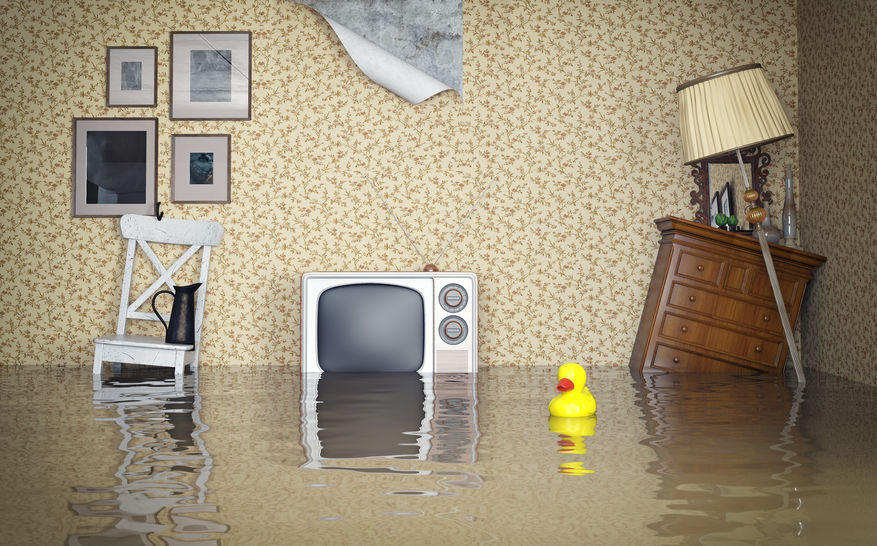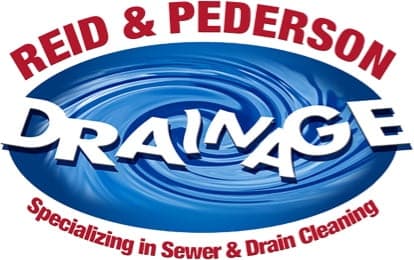A Drainage Minute: The Reid & Pederson Drainage Blog
Why Did My Basement Flood with Sewage?
Having a basement is a great thing as it provides extra living and storage space in your home. Being the lowest point in your home, basements are usually entirely or partially underground though, meaning they’re prone to flooding or other water damage. How does water enter your basement? And what are some things you can do to prevent a costly disaster in your home? Read on or reach out to the pros at Reid & Pederson Drainage today!

Broken or Clogged Sewer Line
Since we are sewer and drain experts, let’s talk about your main sewer line. Your sewer carries all household biological solid and liquid waste out of your home and to your city main by way of gravity. If you experience a basement flood with wastewater, it’s probably because of a break in your main sewer line. Large clogs caused by tree roots, items that should never be flushed down the toilet, or wear and age on your sewer pipes are main reasons why you experience a flooded basement. Any of these situations means a sewer line repair is necessary.
Nobody wants to head downstairs to find their basement covered in their own waste. But fear not! Your sewer usually gives you signs that you’re facing a backup before a backup actually occurs, such as:
- Bubbles, bubbles everywhere. Seeing bubbles and hearing gurgling sounds when sinks, tubs or toilets are draining or flushed is a telltale sign of a sewer issue.
- The unmistakable smell of rotten eggs (hydrogen sulfide). This is caused by sewer gas escaping from cracks or breaks in your line and finding a way into your home.
- Many slow drains all at once in your home. One slow drain usually indicates a problem with only that fixture. But if you have several drains that are clogged, slow to drain or cause issues with other drains when used, a backup is likely in your near future.
Ejector Pump Failure
Another reason your basement can flood with wastewater is if your ejector pump fails. If you have a bathroom in your basement, you also have an ejector pump that pumps the waste out to the city main. Your ejector pump fails due to several causes, such as a power outage, a problem with the float switch or a clog caused by items that shouldn’t be flushed, like feminine hygiene products, wipes or paper towels. Any of these issues cause ejector pumps to stop pumping the waste out of your home. Leaving the waste with nowhere to go, except on the floor of your basement!
How to Prevent a Sewer Backup
Sometimes, a sewer backup is inevitable. In those situations, Reid & Pederson is just a phone call away! But as a homeowner, there are also some simple things you can do to prevent sewage from flooding your basement.
1) Preventative Sewer Maintenance
Annual preventive sewer rodding ensures that your sewer is always clear and free flowing. One of the best ways you can prevent a messy backup in your basement, annual rodding finds sewer problems before they become large, costly ones. Some companies even give discounts for participating in annual preventive sewer maintenance and provide a full year guarantee to ensure your sewer line is always clear! (cough, cough)
2) Check Your Pumps
Periodically check your ejector pump to make sure it is operating how it should be and to ensure there are no clogs in the impeller of the pump. Debris that is caught in the impeller (feminine hygiene products, wipes, paper towels and anything else that shouldn’t be flushed) doesn’t allow solid wastes to flow from the ejector pit to your city main. A problem with the float switch can prevent the sensor on the pump to activate, allowing sewage to rise above ground level and flood your basement. If you also have sump pump(s) in your basement, it’s a good idea to check those too, to prevent excessive groundwater or rainwater from flooding your basement.
Local Drain & Sewer Experts
These simple preventive measures help prevent sewer backups. But rest assured – should you experience a backup in your home, the Crete sewer repair experts Reid & Pederson will get to you fast to clear your problem! Book your appointment today!
